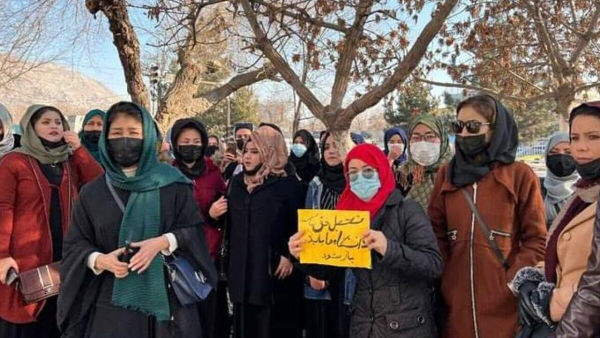The Taliban has arrested dozens of women in western Kabul over the past three days for wearing "improper hijab," the Women’s Political Participation Network reported Thursday.
image1
The organization stated the detained women were taken to an undisclosed location, and their families have not been informed of their whereabouts.
This marks the Taliban’s first major dress code enforcement since their return to power in August 2021. Previously, women were arrested for holding protests.
Women’s rights activists are calling for the unconditional release of these women and urging the United Nations to take decisive action. "The United Nations, Security Council, and Human Rights Organization must recognize this situation and crimes and act swiftly to address this crisis," said women’s rights activist Tarannum Saeedi.
Activists are demanding the release of imprisoned women and stronger international intervention to protect women’s rights in Afghanistan.
The United Nations Assistance Mission in Afghanistan (UNAMA) expressed concern over the ongoing arbitrary arrests, including those of girls’ education activists Fahim Azimi and Siddiqullah Afghan, and women’s rights activist Manizha Siddiqui since October. UNAMA has called for an end to these arrests by the Taliban.
Hadia Sahibzada, a women’s rights activist, reported that some detainees are released on bail after paying high amounts. "Families seeking information are met with ignorance from the Taliban," she said.
Taliban spokesperson Zabihullah Mujahid denied arbitrary arrests, insisting they are conducted legally. "Rest assured, no one is arrested without proper cause. Arrests are made through legal channels by judicial organs," Mujahid stated.
Since regaining control, the Taliban has arrested numerous women’s rights and education activists without providing reasons for their detention.
Human Rights Watch has raised concerns about the significant number of active women in Taliban prisons, many unnamed due to fear and threats to their families. There are also concerns about the potential for torture in prison.
The United Nations political mission in Afghanistan reiterated its concern about arbitrary arrests, emphasizing the need for their cessation.











